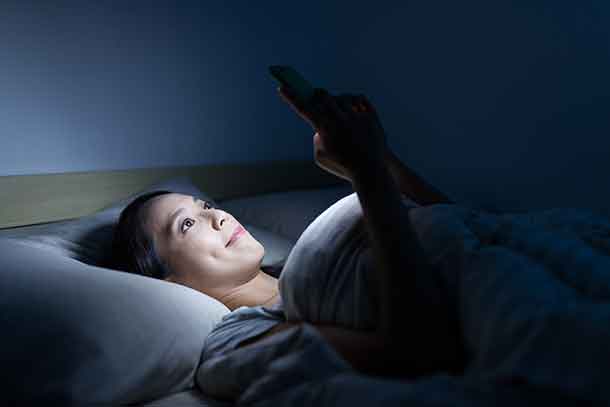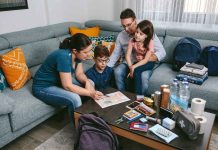THUNDER BAY – Sleep in teenagers can be improved by just one week of limiting their evening exposure to light-emitting screens on phones, tablets and computers, according to findings to be presented in Lyon, at the European Society of Endocrinology annual meeting, ECE 2019. The study indicates that by simply limiting their exposure to blue-light emitting devices in the evening, adolescents can improve their sleep quality and reduce symptoms of fatigue, lack of concentration and bad mood, after just one week.
Recent studies have indicated that exposure to too much evening light, particularly the blue light emitted from screens on smartphones, tablets and computers can affect the brain’s clock and the production of the sleep hormone melatonin, resulting in disrupted sleep time and quality. The lack of sleep doesn’t just cause immediate symptoms of tiredness and poor concentration but can also increase the risk of more serious long-term health issues such as obesity, diabetes and heart disease. Other studies have suggested that sleep deprivation related to screen time may affect children and adolescents more than adults, but no studies have fully investigated how real-life exposure is affecting sleep in adolescents at home and whether it can be reversed.
In this collaborative study between the Netherlands Institute of Neuroscience, the Amsterdam UMC and the Dutch National Institute for Public Health and the Environment, researchers investigated the effects of blue light exposure on adolescents at home. Those who had more than 4 hours per day of screen time had on average 30 minutes later sleep onset and wake up times than those who recorded less than 1 hour per day of screen time, as well as more symptoms of sleep loss. The team conducted a randomized controlled trial to assess the effects of blocking blue light with glasses and no screen time during the evening on the sleep pattern of 25 frequent users. Both blocking blue light with glasses and screen abstinence resulted in sleep onset and wake up times occurring 20 minutes earlier, and a reduction in reported symptoms of sleep loss in participants, after just one week.
Dr. Dirk Jan Stenvers from the Department of Endocrinology and Metabolism of the Amsterdam UMC says, “Adolescents increasingly spend more time on devices with screens and sleep complaints are frequent in this age group. Here we show very simply that these sleep complaints can be easily reversed by minimizing evening screen use or exposure to blue light. Based on our data, it is likely that adolescent sleep complaints and delayed sleep onset are at least partly mediated by blue light from screens”
Dr. Stenvers and his colleagues are now interested in whether the relationship between reduced screen time and improved sleep has long lasting effects, and whether the same effects can be detected in adults.
Dr. Stenvers comments, “Sleep disturbances start with minor symptoms of tiredness and poor concentration but in the long-term, we know that sleep loss is associated with increased risk of obesity, diabetes and heart disease. If we can introduce simple measures now to tackle this issue, we can avoid greater health problems in years to come.”





